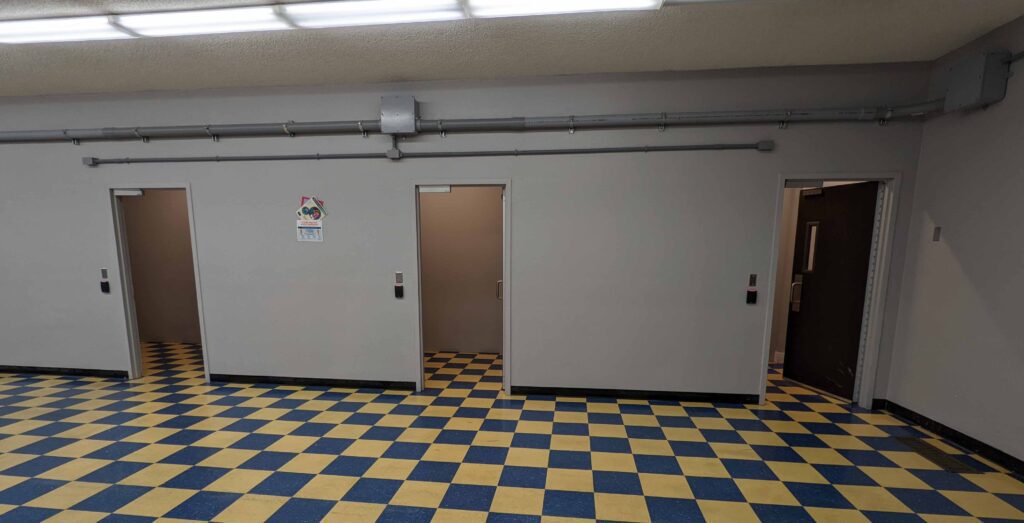
Our Schools Are Creating Our Future
We all benefit when educators have effective strategies to address challenging behaviors in the classroom. There are many effective evidence-based strategies and systems available, backed by neuroscience and educational experts.
Restraint and isolation, however, are ineffective practices to manage student behavior. They are not evidence-based practices. They come from an antiquated system of painful stimuli once used to control students with disabilities in the 1970s and 1980s. These practices are now prohibited because they are so dangerous and harmful, except for restraint and isolation for imminent harm.
Relying on restraint and isolation causes extensive harm to staff and students, generates trauma, dysregulation, and disability, and destroys school climate. Studies also show its use of restraint and isolation increases reliance on and generates more use of restraint and isolation.
When educators do not have access to effective supports, or structures in place for students in crisis, they may feel they are left to rely on restraint and isolation to manage the classroom.
Fortunately, there are already systems and supports that can be leveraged to provide student supports early, long before they reach a crisis point. There are also concrete systems and pathways to eliminate isolation and dramatically reduce restraint. Studies show this reduces injury for staff and students, decreases workers’ compensation claims, and improves worker satisfaction and school climate.
Two recent reports that examined the use of restraint and isolation in Washington found schools and districts, and even states, have effectively eliminated isolation and reduced restraint. The reports captured data and best practices that made that process effective. Disability Rights Washington and The ACLU of Washington and the OSPI Crisis Response Workgroup worked with policymakers to implement report recommendations to infuse schools with appropriate supports and systems to meet the needs of students in crisis while simultaneously reducing these harmful practices. These changes are the basis of House Bill 1479.
What is Isolation?
Isolation as defined in RCW 28A.600.485 means:
Restricting the student alone within a room or any other form of enclosure, from which the student may not leave. It does not include a student’s voluntary use of a quiet space for self-calming, or temporary removal of a student from his or her regular instructional area to an unlocked area for purposes of carrying out an appropriate positive behavioral intervention plan.
What is a Restraint?
Restraint as defined in RCW 28A.600.485 means:
Physical intervention or force used to control a student, including the use of a restraint device to restrict a student’s freedom of movement. It does not include appropriate use of a prescribed medical, orthopedic, or therapeutic device when used as intended, such as to achieve proper body position, balance, or alignment, or to permit a student to participate in activities safely.
Resources
Restraint and Isolation: Washington Laws and Best Practices (PDF)
ACLU/Disability Rights WA Report
OSPI Crisis Response Workgroup Report (PDF)
LEVinar: Ending Isolation Practices in Washington K-12 Schools
- ACLU WA Presentation Slides (PDF)
- OSPI Presentation Slides (PDF)
League of Education Voters Podcast: Isolation and Restraint in Washington state Schools
Media links
https://www.seattletimes.com/opinion/editorials/isolation-and-restraint-of-students-is-abuse/
https://www.spokesman.com/stories/2023/apr/18/spokane-schools-use-of-restraints-isolation-violat/
https://www.spokesman.com/stories/2023/mar/29/kenji-linane-booey-legislature-needs-to-end-isolat/
Civil Rights Division | Seclusion Enforcement – Recent Investigations (justice.gov)
Legislative Hearing Links
Feb 5, 2024 House Appropriations at 10:30 AM (minute 1:09:19)
Feb 3, 2024 House Appropriations at 9:00 AM (minute 1:56:58)
Jan 11, 2024 House Education at 8:00 AM (minute 0:18:24)
Jan 9, 2024 House Education at 4:00 PM (minute 0:00:42)
—
Jan 30, 2023 House Education at 1:30 PM
Feb 16, 2023 House Education at 8:00 AM
Feb 21, 2023 House Appropriations at 1:30 PM
Feb 24, 2023 House Appropriations at 9:00 AM
Mar 20, 2023 Senate Early Learning & K-12 Education at 1:30 PM